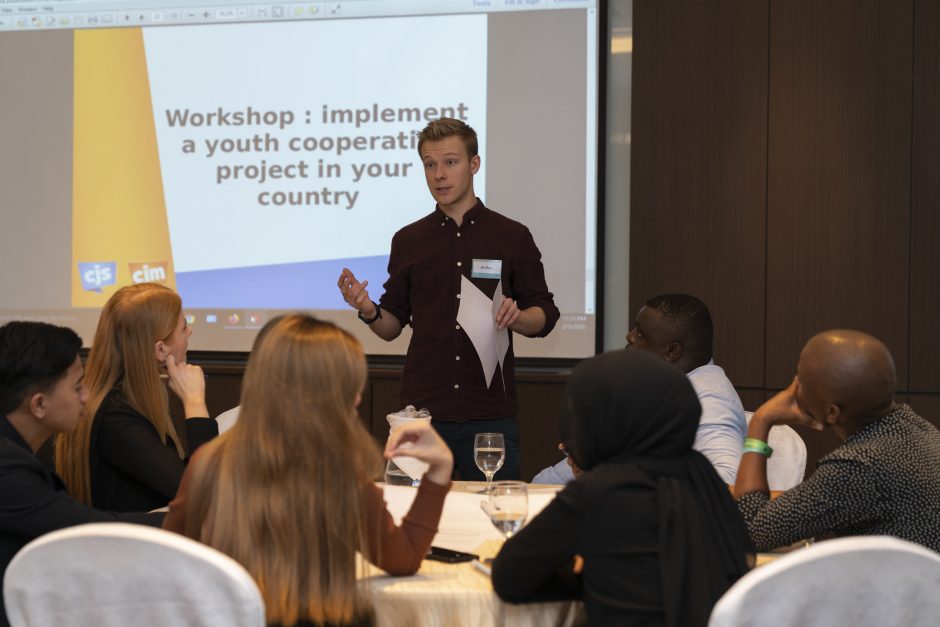The lack of awareness about the co-operative enterprise model is one of the main challenges faced by start-up co-ops. A number of recent projects have been trying to address this by promoting the co-operative enterprise model, particularly amongst the youth.
According to the Co-operative College, one of the most substantial barriers around awareness of co-operatives is the continued absence of the model in curriculums across the world. This is something the College hopes to change through many elements of its work, including participation in the YOUCOOPE project.
YOUCOOPE is a European project that aims to encourage educational institutions to include the cooperative model in their curricula and to promote it among young students and entrepreneurs.
The ten institutions involved, including the College, are designing innovative training modules with resources, methodologies and tools for educators to integrate cooperative entrepreneurship concepts, skills and real experiences in their classroom.
A key part of the initiative will see the launch of a MOOC (massive open online course) that will be free for anyone to complete. The College is also playing a key role in the delivery of a programme of workshops that will roll out during spring next year.
Dr Sarah Alldred, international programmes manager at the Co-operative College, said: “It’s crucial for the future success of the co-operative movement that younger generations are introduced to the benefits of co-operation. The unique challenges that we face demand alternative approaches, and integrating co-operatives into curricula will increase awareness of a model that’s proven to empower people and bring about real, radical change that benefits more than just a select few.”
More information about the project is available online, where details of how to register for the MOOC are also set out.
Another recently launched initiative is YouTHink COOP (YTC), a youth focused educational activity organised within the framework of the ICA-EU Framework Partnership Agreement (#coops4dev). The project aims to offer young entrepreneurs and professionals the opportunity to learn more from their peers and to attend trainings on important topics that can build their professional skills and knowledge.

The first session took place on 9 December and explored what co-operative entrepreneurship is about. Jose María Luzárraga Monasterio, social entrepreneur and founder of LEINN and Mondragon Team Academy thinks one way to raise awareness about co-operatives is to highlight how they are different from conventional businesses.
“We are not embracing competition, but cooperation”, he said. “It’s not about doing it alone but doing it together. And not about people doing extraordinary things but the whole society becoming an entrepreneur, ordinary people that do extraordinary things, not extraordinary individuals. We choose not to do alone what we can do together.”
Another key message should be the social imperative behind setting up a company, highlighting how co-operatives are diverse, multigenerational, and multicultural, he said.
“The essence of co-operative entrepreneurship is people coming together to do something they cannot or do not want to do alone,” he said. Yet, most educational systems across the world focus on individual performance.
“We are trained from an early age to be marked and evaluated alone so we lost what makes us human, a social being. So need to change our identity – am I an individual entrepreneur or a team entrepreneur?” he asked.
In spite of these challenges, Mr Monasterio feels optimistic about the futre of the movement. “Young people want to change the world, embrace solutions and digital platforms. If we reframe how we approach young people, create solutions and address challenges, then they can discover that the best way to create is a co-op legal form.”
During the session Jakub Lyszkowski from Warsaw, Poland, shared his experience of being involved in the Dobrze Food Cooperative, the only one of this kind in the country. Set up seven years ago, the co-op started as a youth project led by people in their 20s and early 30s. Their story was shared in a documentary by Aroundtheworld.coop. It now counts on 500 members and has recently opened an online store. The funding was raised through crowdfunding rather than a loan from a bank.
What was the key to success? He thinks it was important to have a sharp message and highlight that being part of a co-op was a “cool, fun thing to do.” His main tip for promoting the co-operative model is avoiding institutional language and enabling young people to implement their ideas by giving them opportunities to try.
“People learn about co-ops quite late,” said Marc Noel, International Development Director at the International Cooperative Alliance in Brussels, who first heard about co-ops at the age of 24.
“We look forward to seeing the formal education sector start talking about co-ops. But until then informal education and telling stories becomes very important. Young people need to know that the co-op model is an option. We can all be storytellers,” added Mr Noel.